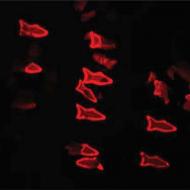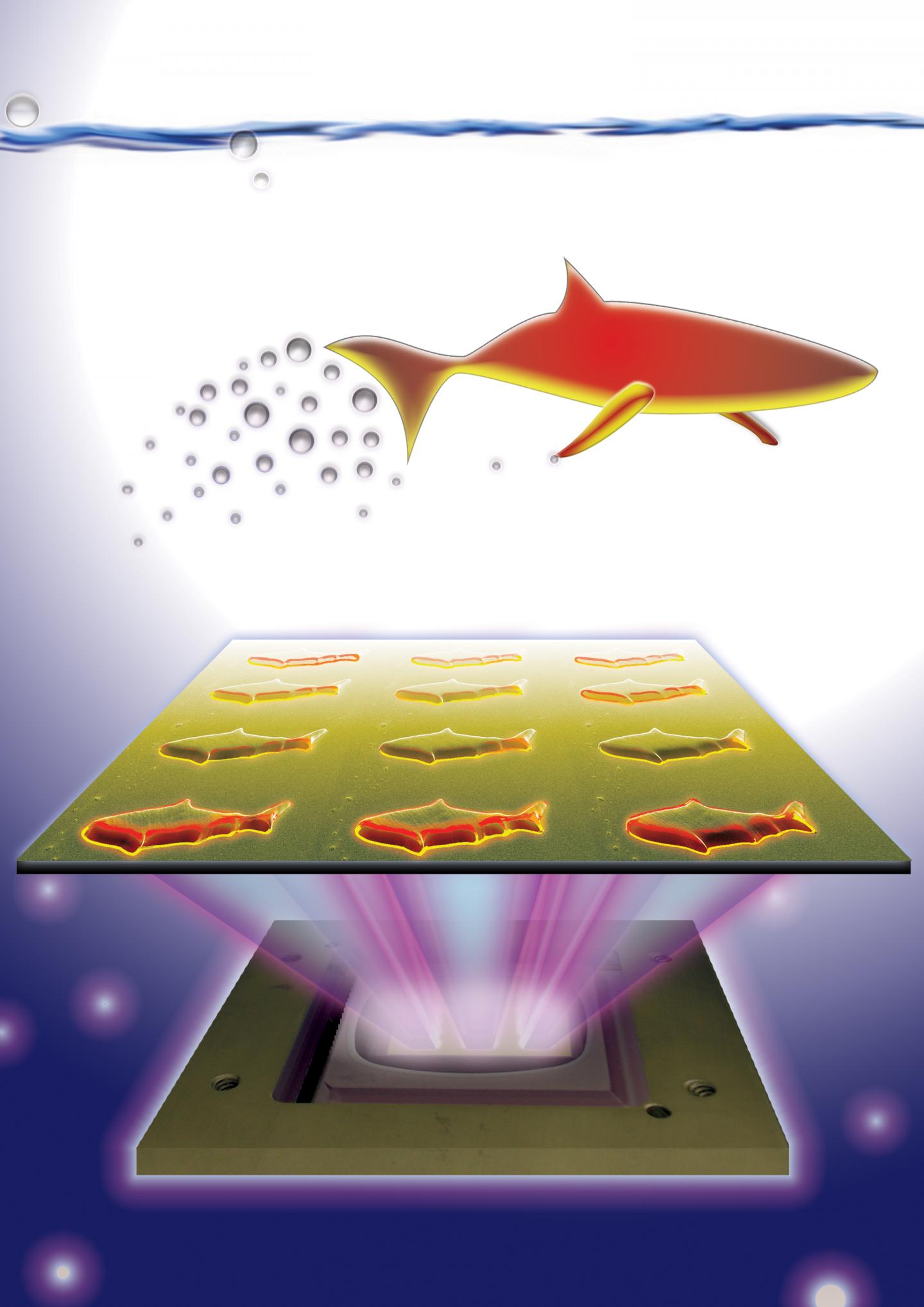Researchers at the University of California in San Diego have 3D printed robotic fish on a nano scale, that could be injected into the human body for drug deliver or detoxification.
These fish can be swim around in liquids being powered chemically using hydrogen peroxide in combination with platinium and can be controlled magnetically. According to researchers, the micro-robots could be used for diverse applications such as detoxification, sensing or direct drug delivery. Installing magnetic iron oxide nanoparticles in the fish’ heads, allowed for steering with magnets.
Co-first author of the paper “3D Printed Artificial Microfish“, Wei Zhu, explains: “We have developed an entirely new method to engineer nature-inspired microscopic swimmers that have complex geometric structures and are smaller than the width of a human hair. With this method, we can easily integrate different functions inside these tiny robotic swimmers for a broad spectrum of applications.”
Each fish is 120 microns long and 30 microns thick and is created using Microscale Continuous Optical Printing (µCOP). This new 3D printing technology has been developed in the lab of Professor Shaochen Chen at the NanoEngineering Department. Hundreds of these microfish in different designs can be printed within seconds.
“With our 3D printing technology, we are not limited to just fish shapes. We can rapidly build microrobots inspired by other biological organisms such as birds,” said Zhu.
 Incorporating toxin-neutralizing noanoparticles throughout the bodies of the microfish, that would bind with toxin molecules, allows for detoxification. This was monitored by the research team by an intense red glow of the fish, which therefore also serves as a toxin sensor.
Incorporating toxin-neutralizing noanoparticles throughout the bodies of the microfish, that would bind with toxin molecules, allows for detoxification. This was monitored by the research team by an intense red glow of the fish, which therefore also serves as a toxin sensor.
“Another exciting possibility we could explore is to encapsulate medicines inside the microfish and use them for directed drug delivery,” explains Jinxing Li, the other co-first author of the study.
Subscribe to our Newsletter
3DPresso is a weekly newsletter that links to the most exciting global stories from the 3D printing and additive manufacturing industry.






















